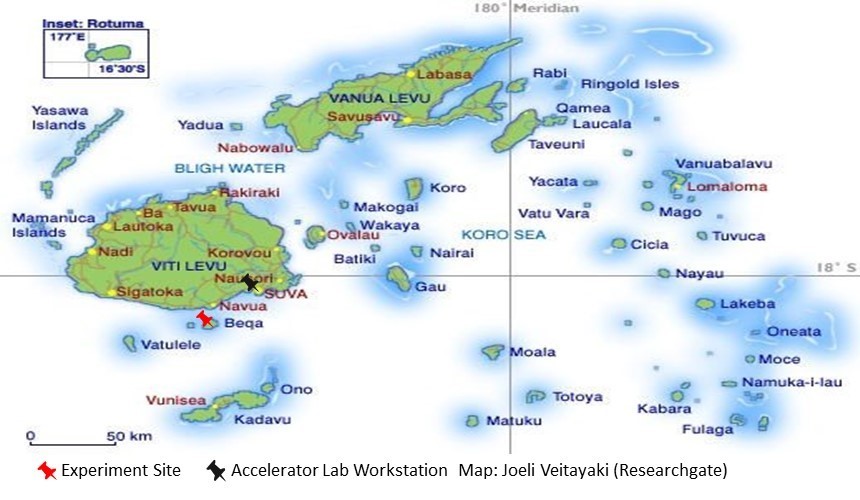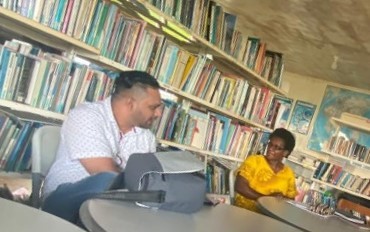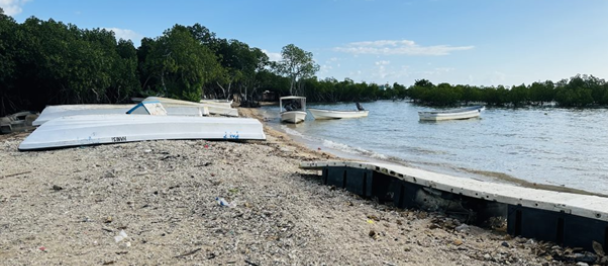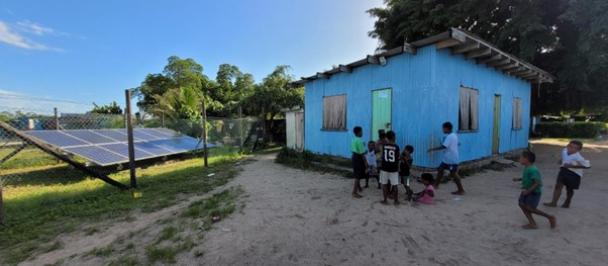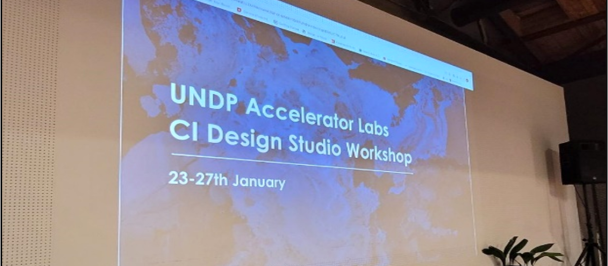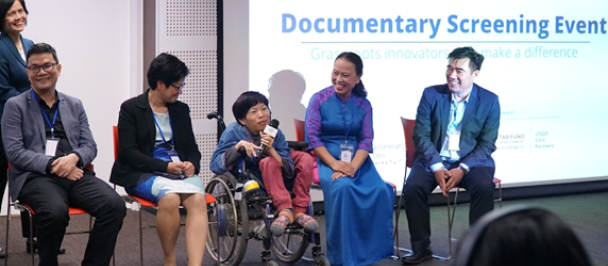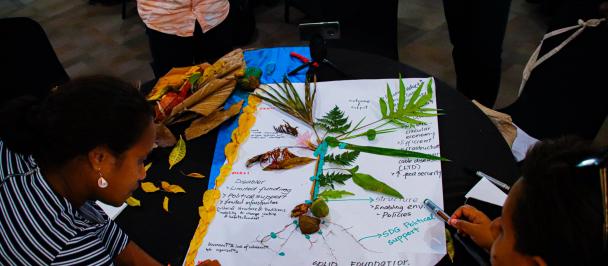This blog post is the second part of a four-blog series that shares the UNDP Accelerator Lab- Pacific learning cycle journeys in the food security space.
In December 2020, the UNDP Accelerator Lab Pacific partnered with the Pacific Blue Foundation (PBF), and together with the Beqa-Yanuca Secondary School, the Fiji Locally Managed Marine Area (FLMMA) Network, the Fung’s Farm, the Ministry of iTaukei (indigenous) Affairs and the Ministry of Education - Government of Fiji, embarked on a journey to pilot an experimental institutional farm, using an innovative Green School Model at the Beqa-Yanuca Secondary School.
Map showing experiment site.
Through this experiment, we were able to increase the availability of affordable nutritional food, increase efficiency of farming production while reducing the degree of exposure to health hazards by applying innovative agricultural systems and techniques, and increase the ability of the school and the community to cope with the impacts of natural disasters and the current global COVID-19 pandemic.
The ethnography in brief
The ethnography aspects during the pre-trial phases had indicated that Beqa island in general was facing disruption of food value chains due to the aftermath caused by Category 5 Cyclone Harold and increased unemployment related to the ongoing COVID-19 pandemic. We also learnt that many of the agricultural practices performed by the communities living there were impacting the marine ecosystem, for example, through synthetic, inorganic fertilizer runoff to the coral reefs.
Together with PBF and FLMMA, we developed a survey questionnaire to gain a deeper understanding surrounding agricultural elements taking place at the school that could better inform our intervention.
Triangulation of data from the survey and from the other evidence such as interviews
Informal conversation with the School Principal. (Photo: UNDP/Evgeniya Klescheva)
with the School Principal and other personnel, and the direct observations on agricultural practices and produce in the school compound, revealed that there was a need to increase nutritional value of the food menus provided to the boarder students, which in turn would contribute towards nutritional food security.
We also found that there was no specific dedicated program in the school curriculum to support the nutritional food security of the boarder students, even though the willingness to have one was voiced for some time.
With the blessings of the traditional leaders, the school management, and the community, the PBF, FLMMA and the Fung’s Farm ran workshops at the school and had installed the new farm and associated systems to operationalize the organic farm. For us, the experience with this intervention has been the best model.
Download full report - Beqa Yanuca Institutional Farm
“Tell me and I forget, teach me and I may remember, involve me and I learn.”
― Benjamin Franklin
The learnings from the Green School model at the Beqa-Yanuca Secondary School had been extremely useful. The insights captured from our experiment became a strong scholarship for upscaling. It led to the successful development and implementation of similar projects under the umbrella program – the Beqa Lagoon Initiative - led by the PBF at two other schools in the Beqa Lagoon area, which were funded by the Canadian High-Commission: at (i) Uluinakorovatu Primary School at Naceva village, Beqa Island, and (ii) at the Yanuca Island Primary School.
Students practice farm mulching. Image: PBF
At these two schools, we were able to deploy a strengthened approach of the Green School project. The applied practices were highly successful and implemented in a shorter time frame, and had resulted with great benefits, such as wider community support and participation, constant production of organic fertilizer and cooking gas, abundance of vegetables, compost, and seedlings. All these resources are used by the schools for its own needs and excess is sold to the community. We were surprised to witness an additional model emerging where the parents started to utilize excess vegetables produced and bartered it with meat and root crops to the school.
Acknowledgement
Sefano Moon Katz of the Pacific Blue Foundation for all his input and provision of images. Rahul Ravneel Prasad, Emily Moli, and Evgeniya Klescheva of UNDP Pacific Office in Fiji.

 Locations
Locations
